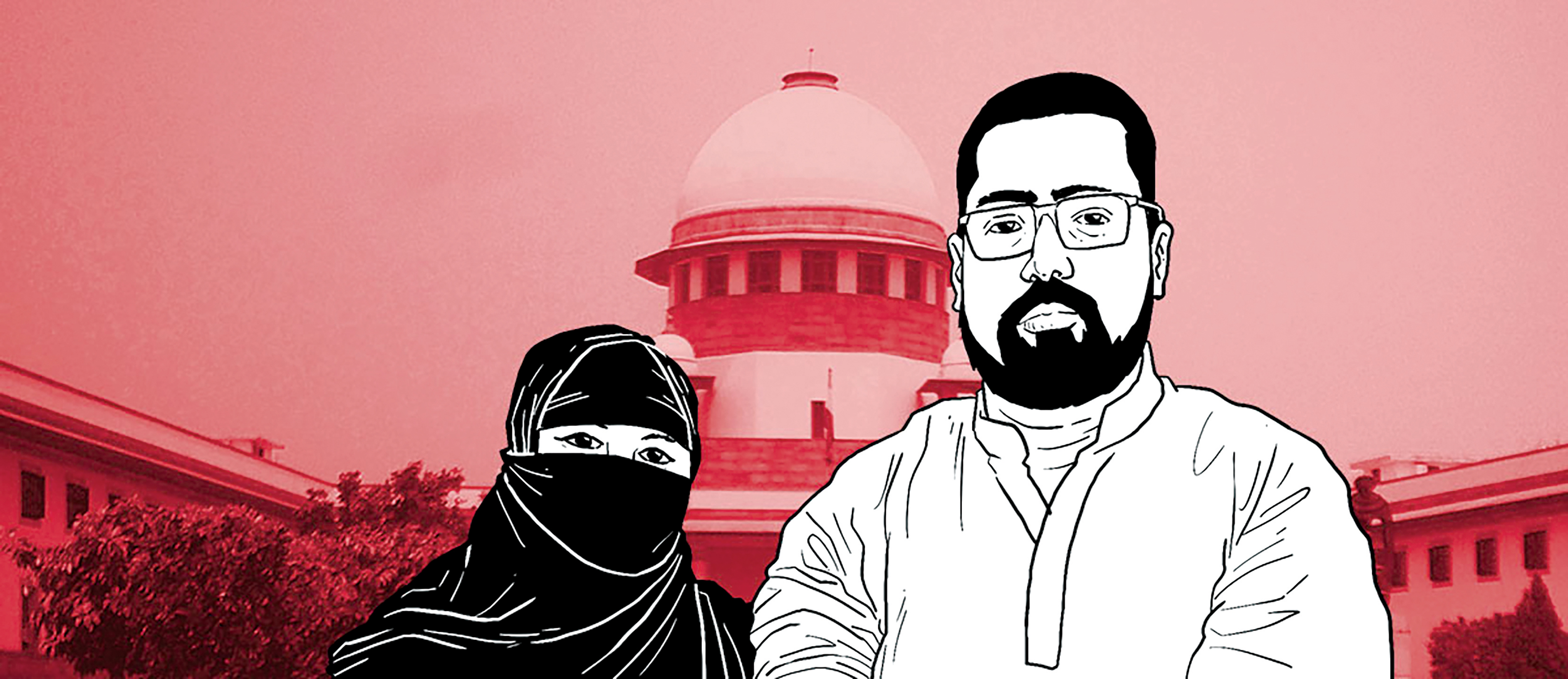
When Zuber and Yasmin got married in Pune back in 1999, little did they know that one day they’d be fighting against the discriminatory practices imposed upon Muslim women that prevents them from entering mosques to offer namaz? But repeated instances from religious leaders as well as fellow members of the community that prevented Yasmin from entering even the local mosque in her neighbourhood—clubbed with inspiration gained from the Supreme Court’s verdict last September where struck down an age-old rule disallowing women between the ages of 10-50 to enter the Sabarimala temple in Kerala—inspired the couple to take a step that just might change this age-old tradition as well.
On Monday, April 15, Yasmin and Zuber moved the Supreme Court to seek an order that allows women to enter mosques and offer prayers. In their writ petition, the couple, who also oppose gender segregation at mosques, stated that they were inspired by the top court’s verdict on the Sabarimala temple issue last year. The petition was filed under Article 32 of the Constitution praying for a direction against the Union of India and others. It seeks a writ/order “declaring the practices of prohibition of entry of Muslim Women in Mosque in India as illegal, unconstitutional for being violative of Articles 14, 15, 21, 25 and 29 of the Constitution, and to pass such further orders as this Hon’ble Court may deem appropriate to provide a life of dignity to Muslim women.”
The petition further reads that at present, women are allowed to offer prayers at mosques under the predominant Jamaat-e-Islami and Mujahid denominations but are barred from mosques under the predominant Sunni faction.
Based on the writ petition, the Supreme Court on April 16 issued notices to the Centre, Waqf Board and All India Muslim Personal Law Board. While hearing the petition, the court said it was hearing the plea only because of the Sabarimala verdict which had been quoted in the PIL: “We are only hearing you because of the Sabarimala judgement. But the provision for Right to Equality under the Constitution can only be invoked against the state and not against an individual who is inside a mosque.”
Speaking with Newslaundry over the phone from their home in Bopodi, Pune, Yasmin and Zuber describe what led to this moment. “Around three years back, my wife and I went shopping, after which I decided to go to a mosque in Aundh area and offer namaz there,” says Zuber. “However, she was not allowed to enter.”
This happened again in their neighbourhood mosque in Bopodi, though Zuber had submitted an application seeking Muslim women to be allowed to enter the mosques to attend religious sermons and offer namaz. He explains: “But at the same time, some of my saathis submitted an opposing application, one that prevented women from entering. That is when I first started studying this subject.” After studying the religious scriptures and speaking to several different imaams and leaders, Zuber claims that no such prohibition is mentioned in the holy book. “‘Bandiyon ko Allah ke ghar aane se na roko’—this reference is made in the Quran. No one can deny it.”
According to him, nothing came out of it even after submitting repeated applications to the mosque in Bopodi. “I requested the police authorities and said that some women want to offer namaz inside the mosque, so please provide them with security. But even they didn’t help. That left only one option—that this should be taken to court.”
When asked what he thought was the origin of this practice, Zuber hazards a guess. “I feel that people must have thought that aauratein aane se fitna hoti hai, jhagda ho jayega, etc., that’s why they must have been banned from entering. That is my assumption. It is a big right for women that has been suppressed for many years. I found it shocking when I saw that Islam allows entry of women into mosques but maulanas are denying it.”
Yasmin is confident that they’ll get justice in court. “Ever since I was a child, I have been told that women aren’t allowed to enter mosques. They tell us to back [away] from the door of the mosque itself and it feels insulting that we are being discriminated against.”
The main bone of contention lies in a question asked by the Supreme Court bench to the petitioner’s counsel on Tuesday as to whether a mosque, temple or church is a State. “Can you invoke Article 14 of the Constitution and claim equal treatment from another human being? Can it be invoked against non-state actors? We can understand that state has to ensure equality. State cannot deny it,” observed the bench, keeping in mind the reference made to the Sabarimala verdict mentioned in the petition.
In response, the petitioners’ counsel told the court that the mosques in India were enjoying the benefits and grant extended to them by the State. But the bench said that they were not satisfied with thus response given by the petitioner’s counsel on whether an individual can assert their right to equality against another individual. The court said, “We are only hearing you because of the Sabarimala judgement. But the provision for Right to Equality under the Constitution can only be invoked against the state and not against an individual who is inside a mosque.”
www.newslaundry.com
The magistrate said the probe reveals that multiple associates could be absconding, which could tamper…
The cylinder blast injured six police and fire personnel deployed at the house where a…
Multiple operational teams have been deployed to probe the case. Crime and Forensic Science Laboratory…
The initiative focused on a victim-centric approach and aimed at strengthening public trust through proactive…
Six of the suspects have been arrested from different parts of Tamil Nadu and will…
The weather department has predicted a mainly clear sky during the day with the maximum…